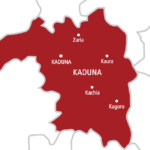At first it was an echo, something the winds bore from far-off shores that have nothing to do with me. With Nigeria, maybe something, since the protest that were about to begin then in France were over hikes in the price of diesel, something Nigeria had dealt with in 2012.
I arrived Marseille a day before the strikes were due to begin. The story of my flight and lost luggage I will save for another time, but in the air, the whiff of impending unrest wafted. It was in the sigh Richard, the driver conveying me from Marseille to Toulon, heaved as we ran into the first of several traffic jams on the way. Go slow we call them here. Toulon was 66km away. The drive should take about 45 minutes. It was going to take longer, even if Richard maneuvered and explored other routes that would avoid the jam.
Richard raked his long-forgotten English vocabulary to find the appropriate words to describe the situation. Each one he found rolled off his tongue varnished in a delectable French accent. But sweet as they sounded, they also conveyed his fears for the next day, when the strikes were due to begin.
My mind travelled back to Nigeria, January 2012 on the eve of the fuel subsidy protests. But this was France. And Toulon is not Paris, a city on steroids. Toulon hugs the Mediterranean, and off its coast, fishing boats dotted the horizon. Beneath them, submarines from the naval base set off to or returned from whereverFrench submarines went to.
At the Fete du Livre du Var, which I attended, occasionally conversations drifted to the strike which had taken off. Some guests were held up in the blockade. My lost luggage, which had been found at last, could not be delivered because it was Sunday and there was a blockade. Organisers of the festival couldn’t send a car to fetch the luggage because there was a “blockade.” The blockade became a dreaded word, like a dreadful movie that defies expectations and is doing well at the box office.
My first real experience of the protest was on the way to Aix en Provence a couple of days after my arrival. The Musee Granet and the scenic looks of the town proved too strong a draw and driving on the A52, it didn’t take long to encounter the protest. It started as a long line of cars, blockaded on the express road and as our car snailed towards the tollgate we discovered the protestors, dressed in yellow traffic vests, had massed themselves by the tollgates, closing down all but one lane, and letting cars through at their discretion.
I remember thinking how peaceful they were, other than the nuisance of impeding movement, how they chanted slogans at passing cars. A lady on a roller skate zipped alongside cars, her yellow vest a blur, smiling but chanting anti-Macron slogans.
“Don’t be scared,” my friend said. “They are mostly peaceful.”
“I am from Nigeria,” I said. “We don’t protest like this.”
In January 2012, Nigerians took to the streets to protest fuel price hikes following the withdrawal of subsidy on petroleum products.The subsidy withdrawal, effective from January 1, 2012, meant pump prices would go up, which meant transport fares would go up, which meant food prices would go up, which meant everything else would go up, except the earnings of the average Nigerian. Buoyed by the success of the Arab Spring, the giddy ideas of which had caught on like wildfire across the world, angry Nigerians, ordinary Nigerians, had set out, blockading roads, marching and chanting anti-government slogans. Ravaging trees to wave broken branches in the air, sticking them on cars, waving them in front of armed policemen, who in certain places, responded with volleys of gunshots. When the dust and smoke cleared, there were corpses and tree branches littering the streets.
Those who died during those protest believed something would change with their deaths, perhaps like Mohamed Bouazizi. Those who survived knew nothing would. They weren’t even sure what they wanted really. Return of subsidy? A change of government? Good governance? (What does that even mean?) Some saw it as an opportunity to make bigger demands on the state -those were the ones who optimistically dubbed the protests “Occupy Nigeria.” The realist decided it would be best to focus on the fuel subsidy because Nigeria’s complicated politics would cripple the protest if it aspired to anything greater than that.
One thing the protests in France and Nigeria had in common was the lack of a clear leadership. Both started off as social media angsts that spewed onto the streets. In Nigeria, labour leaders saw an opening in the headless mass of angry Nigerians, and entered negotiations with the government on behalf of everyone else. They reached an agreement in the night, in the dark, and by morning when they called off the protests, it wasn’t clear what exactly they had agreed to. The feeling of being sold out lingered with the protesters who trudged home to retire their placards and bury the dead.
In France, they went on longer. They adopted the yellow vests because by law every car driver in the country must have one in case of a breakdown. And by evening, after the visit to Aix en Provence, there were two more blockades on the A52 to Toulon, many more yellow vests, some of them leering into the car, booing and giving cars the thumb down. I did not understand the language or the full extent of the politics to know what their expectations were on me, a foreign, passing through the field of their rage, but I understood that the longer it went on, the chances of violence would increase. There is a thing that mob mentality does to people.
While the Nigerian protest costs several trees their leaves, branches and their lives, in France, at the heart of the contention, was a greener environment. President Macron, young and ambitious, wanted to cut down the use of fossil fuel and his solution was to make it expensive by increasing fuel taxes. Diesel prices went up from€1.24 per litre to €1.48. This would help transition people to alternative energy in the nearest future. What he underestimated was the number of people who live outside major cities and rely on diesels to get them from home to work, and their collective resolve.
In the car, driving back, I could almost visualize Macron’s baffled face as he pondered how they could want a greener environment and not be ready to pay for it. I didn’t know this at the time, but somewhere that day, one person lost his life during the protest.
On the day I left France, I left for the airport several hours earlier, factoring in possible blockades on the way to Marseille. But it was in the morning and the yellow vests were still resting from their exertions of the previous day. They would storm the streets later that day, and for several days afterwards, to continue their demands.
As the protests went on, bonfires surfaced on the roads. Clashes with policemen followed. The Arc de Triomphe, a symbolic monument to the power of the people was vandalized, ironically by the people.
And in Marseille, where I flew in and out of, an 80-year-old woman was hit in the face by a teargas canister as she tried to shut her windows. She was the fourth person to die as a result of the protests.
Macron’s arm was twisted. His determined drive for a greener environment by cutting carbon emissions bowed to the resolve of the gilet jaunes, French for yellow vests. The man who rode on a wave of disaffection to office in 2017 has been forced to back down on the waves that have turned on him.
On December 4, French Prime Minister Edouard Phillipe announced suspensions of Fuel Tax, bringing weeks of protest to an end.
The yellow vests returned home, like their Nigerian counterparts from a few years before. What the Nigerian protestors didn’t see coming was that the man they voted to replace President Jonathan, whose decision they protested against in 2012, would take the same decision in 2016. That time they accepted it with only inane whimpers. Perhaps the French, too, might, when they have a president they trust more than Macron.
But at least no innocent trees were harmed during the riots in France. The same cannot be said about Nigeria.

 Join Daily Trust WhatsApp Community For Quick Access To News and Happenings Around You.
Join Daily Trust WhatsApp Community For Quick Access To News and Happenings Around You.


